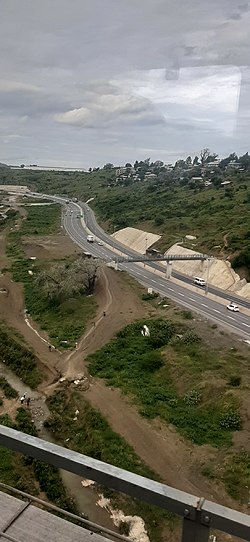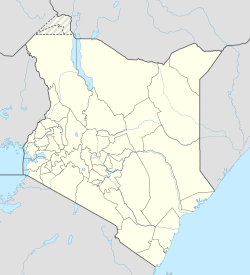This article relies largely or entirely on a single source .(May 2024) |
Miritini | |
|---|---|
 Road to Miritini | |
| Coordinates: 4°0′S39°34′E / 4.000°S 39.567°E | |
| Country | |
| County | Mombasa County |
| Constituency | Changamwe Constituency |
| Population (1999) | |
• Total | 31,485 |
| Time zone | UTC+1 (EAT) |
Miritini is a suburb of Mombasa, Kenya. It is one of the three county assembly wards in Jomvu Constituency. [1] It had a population of 25934 in 2011. [2]
